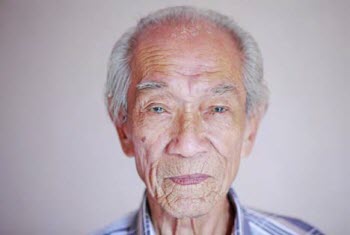Older People and the Law
|
|
This page from JP Boyd on Family Law—and other pages from this Wikibook that discuss BC family law litigation topics—are under editorial review to provide more thorough, current, and practical guidance. Since 2020, procedures, forms, and laws have changed significantly. While gross inaccuracies have been corrected, some details may still be outdated. These pages were not included in the 2024 print edition, and have been highlighted in orange where they appear in the navigation menu on this website. |
Elder law covers the laws that affect older people.
Retirement and government benefits[edit]

The federal government manages two major public pension programs through Service Canada:
- Old Age Security (OAS), based on years of living in Canada, and
- Canada Pension Plan (CPP), based on years of work in Canada and the amount paid into the plan.
Old Age Security[edit]
The Old Age Security (OAS) provides pension benefits to citizens and legal residents of Canada who have lived in the country for 10 or more years as an adult (after turning 18). The Guaranteed Income Supplement (GIS) is an additional monthly benefit paid to Canadian residents who receive Old Age Security pension and have little or no other income.
Apply for Old Age Security benefits six months before you turn 65. For help in making an application, contact your local Service Canada office, or agencies that help seniors in your community.
Canada Pension Plan[edit]
The Canada Pension Plan (CPP) provides income to working Canadians after they retire. The amount of pension income you receive depends on the amount you paid in to the fund from your wages over the years you worked in Canada.
You receive CPP retirement benefits, which is a monthly cheque mailed to you or deposited directly into your bank account, if you have contributed and:
- you are 60-64 years old and have stopped working or have a low income, or
- you are 65 years or older.
In Canada, people have a right to keep working after age 65.
If you work past age 65, you can be receiving CPP benefits at the same time.
You can also continue paying in to CPP until age 70; this will increase the amount you receive in retirement benefits.
CPP gives pension benefits to people who are not able to work because they had an accident, were injured or became ill. This is called a disability pension. If a worker dies, CPP has benefits for the family.
How do I apply?[edit]
To apply for OAS, the GIC supplement, CPP benefits and for more information on federal government programs, contact:
- Service Canada
- For service in English: 1-800-277-9914
- For service in French: 1-800-277-9915
- Hearing or speech impairment: 1-800-255-4786
- Website: www.servicecanada.gc.ca
Have your Social Insurance Number ready when you call.
International benefits[edit]
If you have lived and worked in another country, you may be eligible for social security benefits, either from that country or from Canada.
For information on how to apply for international benefits, contact:
- International Benefits Program
- Telephone: 1-613-957-1954
- Fax: 1-613-952-8901
- Toll-free in Canada and the United States: 1-800-454-8731
- TTY in Canada and the United States: 1-800-255-4786
Always have your Social Insurance Number ready when you call.
Power of attorney[edit]
A power of attorney (POA) is a legal document that names another person, called the "attorney," to manage your financial, business and legal matters for you, but not health care decisions. The person who gives the power of attorney to someone is called a donor.
- Note: In this section, the word "attorney" does not refer to a lawyer. It refers to someone who has power of attorney.
The person you name as your attorney must act in the way you have instructed. It is important for the attorney to understand their duties and responsibilities. It may be a crime under the Criminal Code if an attorney fails to carry out their duties.
Who should I choose?[edit]
You should choose a trusted friend, a relative or your lawyer to act for you. You can have one or two people act as your attorney(s). The people who act as your attorney(s) can act together, or one or the other attorney can be named as an alternate. This will help make sure your wishes are followed.
Choose your attorney very carefully and ask for a regular report on how they manage your finances or business.
You can still handle your own affairs after you appoint an attorney or attorney(s). You can cancel (revoke) an old power of attorney at any time and make a new one with different attorney(s).
Four different types of power of attorney[edit]
There are four different types of power of attorney.
Which one you choose depends on your needs.
- regular power of attorney,
- enduring power of attorney,
- springing power of attorney, and
- limited power of attorney.
Regular power of attorney[edit]

In a regular POA, the power you give an attorney may be specific or general.
When you give a specific power of attorney, it means you give this person the power to do certain things only. For example, you may want them to do your banking when you’re out of town on vacation.
When you give a general power of attorney, it means you give this person the power to manage all your financial and legal affairs. They are to follow your wishes and instructions.
A regular power of attorney ends if you become mentally incapable. Mentally incapable is a legal term that means not being able to understand what you are doing and what might happen as a result.
You can be incapable in one area of decision-making, yet still be able to manage your life in other areas. For example, you may be able to decide where to live and what kind of health services you want, but not be able to manage your finances.
People can make bad decisions and not be mentally incapable. The test is whether they understand what they are doing.
Enduring power of attorney[edit]
An enduring power of attorney continues if you become mentally incapable.
You can cancel your enduring power of attorney at any time while you are mentally capable.
You cannot cancel an enduring power of attorney if you are mentally incapable.
The attorney must follow your instructions. The attorney must act in your best interests and consider what your wishes would be.
In your enduring power of attorney you say when you want it to start. You may want it to start right away. Or you may want it to start only if you become mentally incapable. (In this case, it becomes a springing power of attorney, which is discussed next.)
Springing power of attorney[edit]
A springing POA comes into effect only when a specific event happens. An event might be if you have a car accident, or become ill, or become mentally incapable.
A springing power of attorney must say:
- what event will start it, and
- how people will know without a doubt that the event has happened.
Limited power of attorney[edit]
In a limited power of attorney, you say exactly what action your attorney can take, and put a time limit on when the power of attorney ends.
For example, suppose you are travelling in another country, and you need someone to go to the bank in person to move some funds. You can give your attorney permission to do this and set a time limit. For example, the attorney must move the funds within five days of the start of a new month.
A limited POA ends when the action is completed or when the time limit has passed.
If you have worries about your attorney[edit]
Attorney(s) have a duty to act in your best interests and follow your wishes. But some attorneys misuse their power. They might take funds out of your bank account without your permission. Or they might sell what you own and use the money for themselves. This is financial abuse and it happens to many people, especially seniors.
If you are worried about your power of attorney agreement or want to name someone else as your attorney, you can end the agreement as long as you are mentally capable.
Talk to a lawyer for help and advice, or contact one of the agencies listed at the end of the Find Out More section.
Joint bank accounts[edit]
A joint bank account is held by two or more people. Any person whose name is on the joint bank account can put money into the bank account and take money out of the bank account.
Sometimes people put their bank account into joint names with a friend or relative so that the other person can help with banking, shopping and taking out cash for spending. But any person named on the account can use all of the funds as their own and take out all the money. So joint accounts can be dangerous.
As a safer option, you can apply to have your bank pay monthly bills from your account for you. You can also ask the government to have your pension and other cheques deposited directly into your bank account. The bank will send you a monthly statement so that you know all the activity in your account. There might be a small cost, but many banks have low or no fees for services to seniors.
You can also open a second, smaller bank account. You can ask the bank to regularly move funds from your main account into the second account to pay for what you need each month. The person who is helping you with banking and shopping can withdraw money from this account but not the main account. The main account stays in your name only.
Talk to your bank manager for more ideas on keeping your money safe.
Representation agreements[edit]

A representation agreement allows the person you name as your representative to make personal and health care decisions for you.
There are two types of representation agreements:
- standard representation agreements, and
- enhanced representation agreements.
Standard representation agreements give limited authority to the representative you name to make some health and routine financial decisions for you.
Standard representation agreements do not allow a representative to make decisions about end-of-life care.
If you are incapable of entering into a contract or managing your affairs, you can make a standard representation agreement as long as you can express your wishes, and you understand the effects of a representation agreement.
Enhanced representation agreements give more responsibility to your representative over health care and personal decisions. Your representative might even decide if you will or will not receive medical services necessary to continue life.
To make an enhanced representation agreement, you need to have full mental capacity. Under an enhanced representation agreement, the representative has no authority over financial decisions.
Who should I choose to be my representative?[edit]
Choose someone you know well and trust. Make sure they know your wishes. As your representative, they must respect those wishes, now and in the future, especially if you can’t speak for yourself.
Advance directives[edit]
In an advance directive you can write instructions to your representative or to your doctor about what kind of health care you want and don’t want if you have a serious medical condition.
Advance directives often deal with end-of-life decisions. Some people use the term "living will" when talking about an advance directive.
Instructions in your advance directive can be:
- general statements such as: I don't want to be connected to machines to stay alive, or
- specific statements such as: I don't want to receive donated blood.
An advance directive ensures that your wishes are followed even if you are not able to speak for yourself due to an injury or illness. Keep your advance directive updated. For example, there might be improvements in medicine you wish to consider.
A possible difficulty with advance directives is that your wishes may change over time. Remember to renew and update your advance directive from time to time.
Protecting yourself and your money[edit]
When you are a senior, sometimes people try to take advantage of you. It is important to protect yourself and your money.
Criminals use a variety of methods to trick people and take their money. Older people are often the target of these criminal tricks.
Sometimes the criminals take money. Other times, they use your personal information to access your bank accounts or run up debts in your name. This is called identity theft, which means taking your personal information and using your identity.
Be careful with your personal information, which includes your name, address, phone number and date of birth. Be careful when throwing away credit card statements and grocery receipts. Tear the receipts up or put them through a paper shredder, as criminals may go through the trash and use the statements and receipts to find information about you.
Never give out your Canada Social Insurance Number, credit card numbers, or bank account information to someone you don’t know and trust. Keep your passwords and bank cards separate.
If you write down your passwords, make sure you store the password in a safe place. Don’t keep passwords in your wallet. Never give out personal information on the telephone or by email. If someone is asking questions they may be trying to learn your personal information.
A bank will never ask for personal information or passwords over the phone unless you call them and the bank asks you to prove your identity. A bank will never email you and ask for your passwords or the numbers for debit or credit cards.
Phone calls saying you have won a vacation, or money, and asking you to enter in your phone number are not real contests. It is not safe to give these callers your personal information.
If you have caller ID on your phone, you can look to see if the number belongs to someone you know. If the number is not familiar, you can let the phone ring and ignore the call.
You can also register for the National Do Not Call List to reduce calls from people and companies trying to sell you things. Visit www.lnnte-dncl.gc.ca/index-eng for more information on how to register a phone number for the National Do Not Call List.
If you have a problem, see the resources listed in the Find Out More section. Remember, if an offer sounds too good to be true, it usually is.
Know what you're signing[edit]
Talk to a legal advisor or a lawyer before you sign any legal documents.
- Signing a document means you agree to everything that’s written in the document.
- Don’t sign anything that you don’t understand.
Wills and estates[edit]

Everything you own at the time of your death is called your estate. Homes, bank accounts, investment accounts, jewelry and cars can all be part of your estate. If you have debt when you die, what you owe is part of your estate.
A will is a written legal document that contains your instructions about what happens to your estate after you die.
A will is not the same as a power of attorney. A power of attorney deals with your instructions about what happens to your affairs while you are alive.
You need to name someone as executor of the estate. This is the person who follows the instructions in your will. You should also name a second person in case the first executor cannot act as executor.
The executor can be a trusted friend, relative, lawyer or company. Your executor is not automatically your attorney unless you appoint the same person as executor and as your attorney under a power of attorney.
You can cancel an old will and make a new one, as long as you are mentally capable.
Elder abuse[edit]
Elder abuse is mistreatment that results in harm or loss to an older person. Elder abuse falls into a number of different categories:
Physical abuse: using physical force against an older adult.
Financial abuse: misusing an older adult’s money or property. It includes forcing an older adult to sign a document.
Neglect: the person is not being kept clean and safe.
Sexual abuse: forced sexual contact of any kind.
Psychological or emotional abuse: any actions that cause mental and emotional harm. It includes threats, verbal abuse, non-verbal abuse and humiliation.
What are some signs of abuse?[edit]
Here are some signs that abuse may be happening:
- Physical abuse: bruising and injuries that cannot be explained.
- Psychological or emotional abuse: showing a high level of anxiety or distress.
- Financial abuse: large unexplained withdrawals from bank accounts.
- Neglect or self-neglect: lack of bathing, unclean living conditions, and lack of health aids such as dentures or glasses.
Different types of abuse often occur at the same time. For example, a victim of physical abuse may also be a victim of psychological or emotional abuse.
Where to go for help[edit]

You deserve to be treated with dignity and respect. Elder abuse is always wrong, and can also be a criminal offence.
If you think you may need legal advice, contact a lawyer.
The following resources can provide support to you or someone you know:
BC Centre for Elder Advocacy and Support (BC CEAS) provides confidential legal information and emotional support over the phone. BC CEAS can also provide legal representation. Contact details are in the Find Out More section.
BC Human Rights Coalition provides information and services to people in BC who need help to protect their rights under the BC Human Rights Code. For more information phone 604-689-8474 or toll free 1-877-689-8474.
VictimLINK can put you in touch with counselling and helping services, and people who may be able to help you find a safe place to stay. Call 1-800-563-0808.
BC Association of Community Response Networks (BCCRN) can provide information and help to anyone who is being abused or neglected, or is supporting someone who is. To find your local Community Response Network, email info@bccrns.ca or go to www.bccrns.ca.
For seniors who are in a care facility or group home, call the Community Care Facilities Licensing Officer in your area. To contact a licensing officer, call the Health Information Line at 1-800-465-4911 and ask for the telephone number.
The Public Guardian and Trustee's Office can tell you which local agency has the responsibility to respond to reports of abuse and neglect of older adults. Phone: 604-775-1007 or 604-660-4444. If calling from outside the Lower Mainland, call Service Canada at 1-800-663-7867 and ask to be transferred to the Public Guardian and Trustee’s Office.
Regional Health Authorities such as Vancouver Coastal Health, Fraser Health, Interior Health, Vancouver Island Health Authority and Northern Health Authority are designated agencies. Designated agencies have a legal responsibility to look into reports of adult abuse and neglect.
The police. If you are in immediate danger, call 911. In non-emergencies or if there has been a criminal offence (like theft), call your local police. You may wish to make a police report.
Your local health unit. Call the Health and Seniors Information Line at 1-800-465-4911 and ask to be connected to your local health unit or a mental health worker.
| This information applies to British Columbia, Canada. Last reviewed for legal accuracy by People's Law School, 2013. |
| |||||||||||||||||||||||||||||

